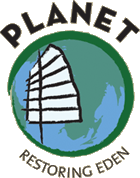Our Approach to Conservation
- Mission Statement
- The Issues
- Our Approach to Conservation
- Our Approach to Tourism
Many experts agree that the current approach to conservation does not work as well as it could or should. This shortfall is attributable to a number of factors, notable among which are a predilection towards grandiose schemes while basic management expertise for even small conservation areas is lacking; a top-down approach that at best only marginally involves local communities in any decision process; projects that are established for a short duration involving personnel of limited proficiency and experience; and perhaps most importantly, establishment of programs that are largely donor-driven. This last point is perhaps an inevitable outcome of the competition among conservation agencies to raise project funds from individuals, foundations, businesses, and governments. Consequently, establishment of projects is now largely dependent on their allure, supported and augmented by public relation firms, glossy magazines, websites, and a good dose of hype.
Conservation has largely become mercantile and therefore ultimately product-oriented. Project viability and long-lasting solutions are usually sacrificed to short-term donor satisfaction and limited attention spans. The reality is that conservation projects, in order to reasonably address their mandate, need considerable funding stability and tenure to achieve viable and durable objectives. Current lack of reliable streams of income generally result in the implementation of 2-3 year projects that mostly fail to achieve long-term planning and clear recommendations.
 In addition, a further drawback to the current conservation model is that the background of people working in the field is often similar. This creates a significant lack of diversity in perspective and progress. In order to effect change there is a substantial need for ideas and planning from experts in a variety of disciplines at present not included in mainstream conservation. Conservation projects do not fail because they are not well-intentioned, but because they neglect to fully integrate complexities of local situations, diversities of value systems, and differences in attitudes towards the resources to be conserved. This is perhaps most evident when resources that have long been used are targeted by conservation plans while there is little compensation or alternative offered to local communities.
In addition, a further drawback to the current conservation model is that the background of people working in the field is often similar. This creates a significant lack of diversity in perspective and progress. In order to effect change there is a substantial need for ideas and planning from experts in a variety of disciplines at present not included in mainstream conservation. Conservation projects do not fail because they are not well-intentioned, but because they neglect to fully integrate complexities of local situations, diversities of value systems, and differences in attitudes towards the resources to be conserved. This is perhaps most evident when resources that have long been used are targeted by conservation plans while there is little compensation or alternative offered to local communities.
Planet is dedicated to address these current shortcomings with innovative and creative solutions. Our commitment will be to ensure that crucial projects continue as long as needed, and that experts will be long-term employed to ensure lasting results. Projects will be established with consultation and involvement of the local communities who will ultimately be responsible for the continuity of any program.
We aim to achieve these objectives as follows. Planet will establish a sustainable base of income through tourism to support project core staff and research activities. Such finance will achieve four goals. First, the core group of experts will have the ability to develop rational recommendations for each project that are not narrowly defined by donor requirements. Second, we intend to attract clients who will be directly involved in each conservation project. Such clients will have a wide sphere of knowledge, and once they have become familiar with the issues, challenges, and initiatives, we intend for them to become personally concerned with projects by contributing their expertise. This will contribute to a sense of ownership and pride in each project, and we anticipate that this stake will encourage long-term involvement. Third, information and updates from each project will be made readily available on our website, and we will invite comment and feedback from participants and other experts. This will ensure relativity, continuity, and regular assessment. And fourth, combination of projects with tourism will allow generation of income for local communities and provision of much-needed employment.
Once programs have been established and can demonstrate achievements, Planet will approach multinational and individual donors to supplement funds and contribute to larger project components. Such donors will therefore be able to assess much more clearly project needs, timing, progress, long-term goals, and need for diligent expertise. Planet seeks to approach each project with a well-designed set of priorities and benchmarks to achieve specific goals. Each project will involve multiple components, carefully established by the board of directors, and integrated into a practical and proactive mission statement. Evaluation of progress, as mentioned, will be both in-house and by a diverse group of experts and project stakeholders, most importantly including the local communities, which will significantly improve durability of any program.

